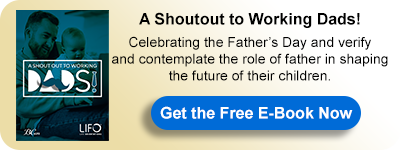The Different Fathering Styles
In the light of LIFO® Parenting Styles Survey, there are four styles by which people look at things. Through which a parent is not one thing or another. However, they are one thing and another. As the Life Orientation Styles Survey go beyond defining characters and clustering them into solidified criteria, it rather works deeper to understand the different styles and how they would reflect in the process of raising children. As per the philosophy of LIFO® Styles Surveys; you are not one thing or another; you are one thing and another.
It is believed that the father factor can affect future work-life depending on the type of father a child had to deal with, and grows up to identify in different managerial relations. The different fathering styles are1:
・Super Achiever: the legacy extended through this type/style of fathering is usually shame. When high standards are expected and not met, usually the person carrying the super achiever legacy is one’s toughest critics. In this type one can find it very difficult to share insecurities and exert a tremendous effort to conceal their weaknesses. The most key factor in overcoming such effect is self-nurturing; accepting that mistakes can be done, perfectionism is not always attained and to rather focus on self-acceptance.
・Time Bomb: This kind of fathering style makes a child’s priority is to always please the father, avoiding any unpredictable burst. A thing that can improve reading others well when it comes to communication. However, it affects negatively the ability to conflict healthily and transparently. It is helpful to, in order to overcome the lingering effects of such style, listen attentively to the voice inside and decide whom it belongs to. A sound that always nags “if I am not nice all the time, people will avoid me,” is not necessarily one’s own. However, it belongs to a father’s opinion of a child who wants to challenge and ask questions.
・Passive: In this style the father role is rather observatory than participatory. They are usually distant emotionally and they think that their sole role or mission is to provide for the family monetarily. The career hurdles this style could cause is fear of failure and an apparent lack of motivation. Focusing on widening one’s insights and having a sense of direction could help achieve personal and career satisfaction.
・Absent: Children usually interpret a father’s physical and emotional absence as rejection. In the work place, the reaction to this could be rather apparent through having issues with authority figures; male bosses in specific, and may behave with aggression with colleagues and peers. A good way to overcome this is to identify the positive aspects of a father’s absence as much as one identifies the negative aspects.
・Compassionate/Mentor: This style does not project all the broken dreams and the wanted-to-be(s) on their children. They rather support and nurture the individualistic traits of their children; which reflects positively in the future abilities of finding a middle ground between passivity and aggression when it comes to dealing with work encounters. It also reflects in the healthiness of relations built with management, peers, and customers; through reinforcing flexibility, forgiveness, and compassion.
1https://www.webmd.com/men/features/dads-impact-on-career
For more about this topic, download our latest book "A Shout Out to Working Dads!" for FREE:
